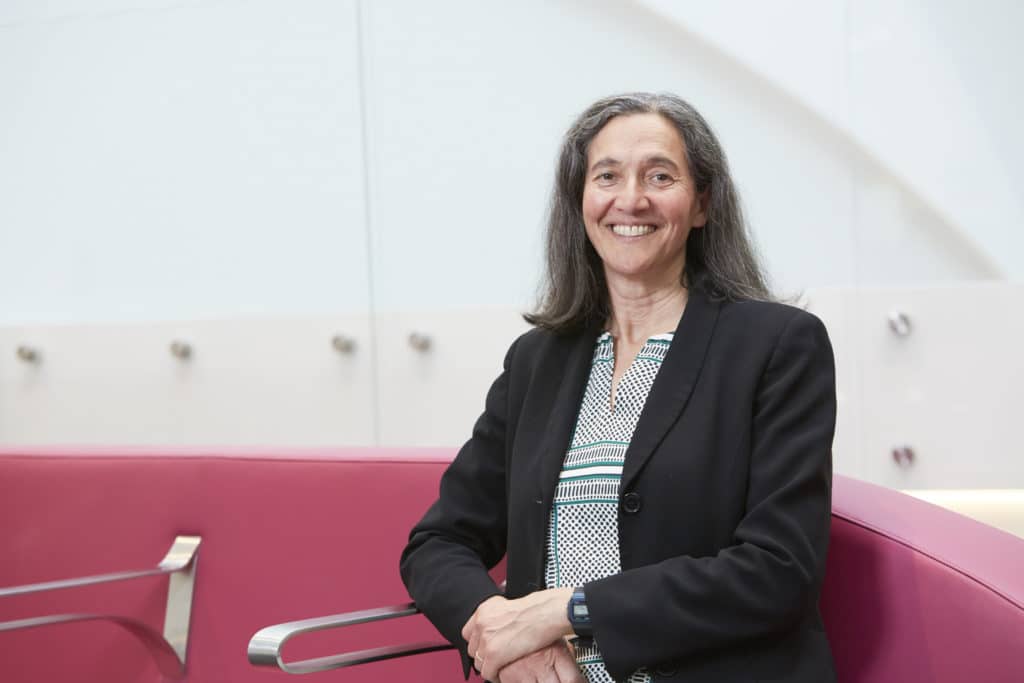Early Detection of Metastatic Disease
Metastatic breast cancer or cancer which has spread to other parts of the body most commonly appears in the liver, brain bones or lungs. Every metastatic breast cancer diagnosis is different and will therefore require different treatments. The aim of treating metastatic breast cancer is to control the growth and spread of the cancer, to relieve symptoms and improve or maintain quality of life.
Professor Prue Francis is a Medical Oncologist and the Clinical Head of Breast Medical Oncology at the Peter MacCallum Cancer Centre. Professor Prue Francis was a recent guest speaker at the 2022 Breast Cancer Trials Annual Scientific Meeting and her presentation was titled: Does Detecting Metastatic Disease Early Make a Difference?
“Well thus far the evidence that we have from randomised trials has not shown that detecting distant metastases early makes a difference in patient outcomes. The data we have is based on randomised trials that were done quite a long time ago.”
“They were conducted during the 1980s, early 90s and published in 1990 for two large trials, that suggest that regular scans, blood tests and X-rays did not give a longer survival for patients if they were done during follow up compared to standard follow up. This includes physical examination and mammography follow up, which would be considered routine.”
“So, the recommendations from American guidelines like ASCO, or College of Physicians in Australia, or the Medical Oncology Group, do not recommend doing routine scans and blood tests for follow up of asymptomatic patients with early breast cancer.”
“We do recommend breast imaging, a physical exam, and scans if there were symptoms and there’s research on metastatic disease primarily concentrated on improving quality of life or extending life. So, in terms of research for metastatic disease, I suppose one of our biggest goals is trying to extend life because that’s very important to patients.”
“So, if a drug is or a treatment program is compared to a current gold standard and shown to improve overall survival significantly, then that is a treatment that we will want to implement. So that’s considered a gold standard.”
Listen to the Podcast
Listen to our conversation with Professor Prue Francis as she discusses breast cancer early detection of metastatic disease.
“We know that there are other situations for patients with metastatic disease where quality of life is very important. So, research also around ways to manage metastatic breast cancer that can improve quality of life, even if survival were not improved, would also be considered important.”
Will there be a Cure for Metastatic Breast Cancer?
“I think we will have a cure perhaps not for all metastatic breast cancer, but I think for some metastatic breast cancer. In fact, I think already for some metastatic breast cancer, very selected occasional cases, I believe we probably already are curing some.”
“Those patients might be patients with metastatic HER2+ breast cancer where there are some patients that appear to go into a very long-term remission and have not relapsed.”
“So, for example, there was a trial done in patients who were getting their first line of therapy for metastatic HER2 positive breast cancer. And the patients who were treated with chemotherapy plus to HER2 targeted agents trastuzumab and pertuzumab, at 8 years there were 16% of those patients who had their disease controlled and it had not progressed. So that’s a long period of time to have your disease controlled.”
“So, I believe within those two positive patients there may be some that are cured, and I think there will be other small subsets that we will be able to find cures for. It may take a lot longer to try and find cures for all the types of metastatic breast cancer.”
Support Us
Help us to change lives through breast cancer clinical trials research



